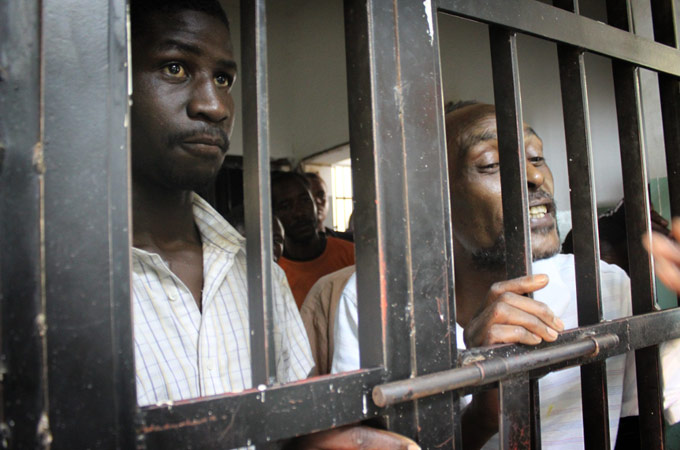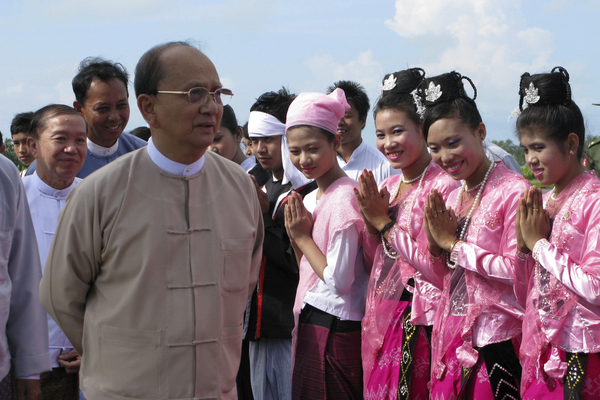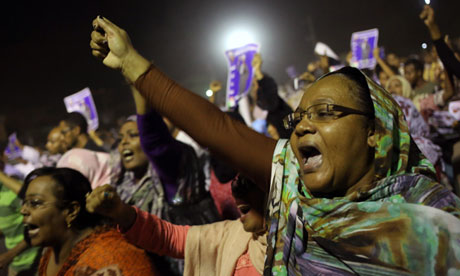By: Danielle L. Gwozdz
Impunity Watch News Reporter, Africa
TRIPOLI, Libya – A new UN report has stated that torture and ill-treatment, sometimes resulting in death, is “widespread” in Libyan jails. Dozens have been tortured to death, including 11 this year and 27 in two years, in prisons run by militias.

The militias that control these jails joined forces two years ago to overthrow leader Moammar Gadhafi. These are the militias that have triumphed in the eight-month civil war in 2011.
The UN estimates about 8,000 people are still being held in relation to the 2011 conflict which ended in the overthrow of Gadhafi.
The vast majority are being held without due process, the report claimed.
Torture is being used “as a means to extract confessions or other information”, the UN says.
The UN Report titled “Torture and Deaths in Detention in Libya” said the abuse of detainees persists despite the Government’s efforts. The report recommends swift action to transfer detainees held by armed brigades to State control, as well as renewed efforts to build the capacity of the criminal justice system.
“Torture is illegal, under any circumstance, with no exceptions,” said UN High Commissioner for Human Rights Navi Pillay.
“The situation of detainees in Libya is alarming and while there has been some progress, there is an urgent need to renew efforts to prevent torture, investigate allegations of torture and prosecute those responsible,” Pillay further stated.
Libya’s central government has struggled to remove the presence of armed militias since Gadhafi’s death in 2011.
The report further presented information about the view on this torture from the armed brigade. It reported: “In some cases, members of the armed brigades freely admitted, and even tried to justify, the physical abuse of detainees.”
However, no one was immediately available for comment for the Libyan government.
The Libyan government had declared its commitment to ending torture and ensuring the proper working of the country’s criminal justice system, and praised its passage of a law making torture a criminal offense.
But both UN bodies feared that unless firm action was taken “there was danger that torture will become institutionalized within the new Libya.”
In government-controlled prisons run by trained police or prison officers, which UN staff have visited, conditions and treatment of detainees were better than those operated by the militia.
Conditions are improving, the report did say, for detainees held in prisons controlled by Libya’s Judicial Police. But it urged the government to speed up the takeover and the staffing of militia-run jails with trained police and correctional officers.
The report further recommends that Libyan authorities adopt a strategy to screen and, where appropriate, release or charge and prosecute conflict-related detainees, in implementation of the Law on Transitional Justice.
The report is based on information gathered first-hand during UNSMIL’s visits to nearly 30 detention centers over two years, including information from detainees, family members, officials and civil society, as well as documentation such as medical reports.
For more information, please visit:
BBC News – Torture ‘widespread’ in Libyan jails – UN report – 1 October 2013
Aljazeera – UN finds widespread torture in Libya jails – 1 October 2013
The New York Times – Libya: 27 Tortured to Death in Jails Run by Militias, U.N. Report Says – 1 October 2013
VOA News – UN Report: Torture Rampant in Libyan Jails – 1 October 2013
abc news – UN Finds Torture Widespread in Libya – 1 October 2013
UN News Centre – Despite Government efforts, torture widespread in Libya’s detention centres – UN report – 1 October 2013

